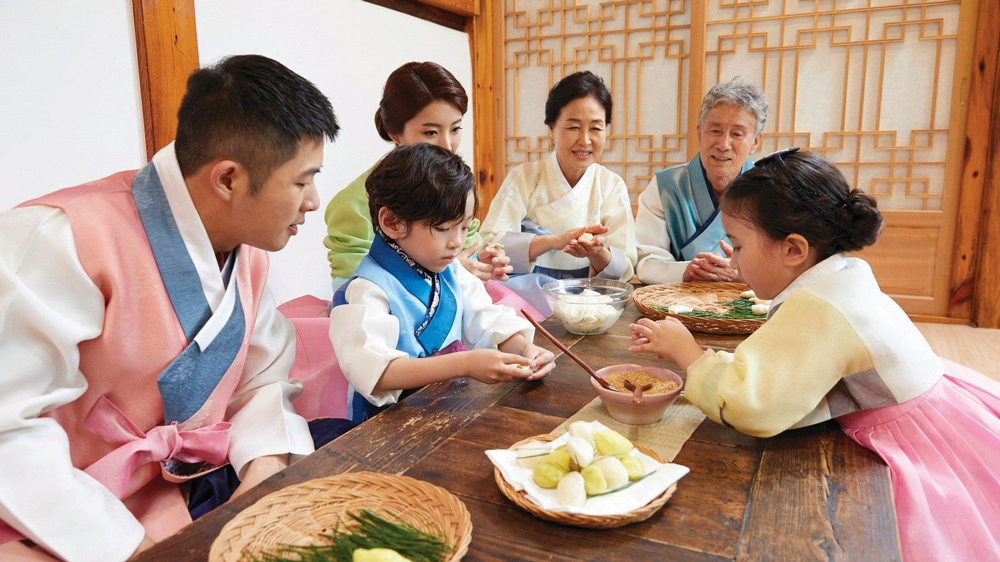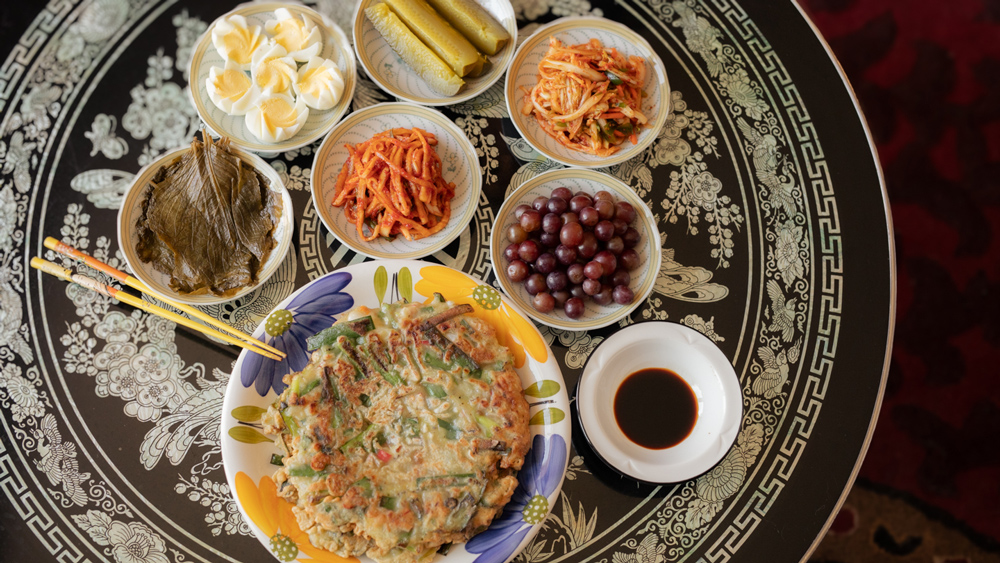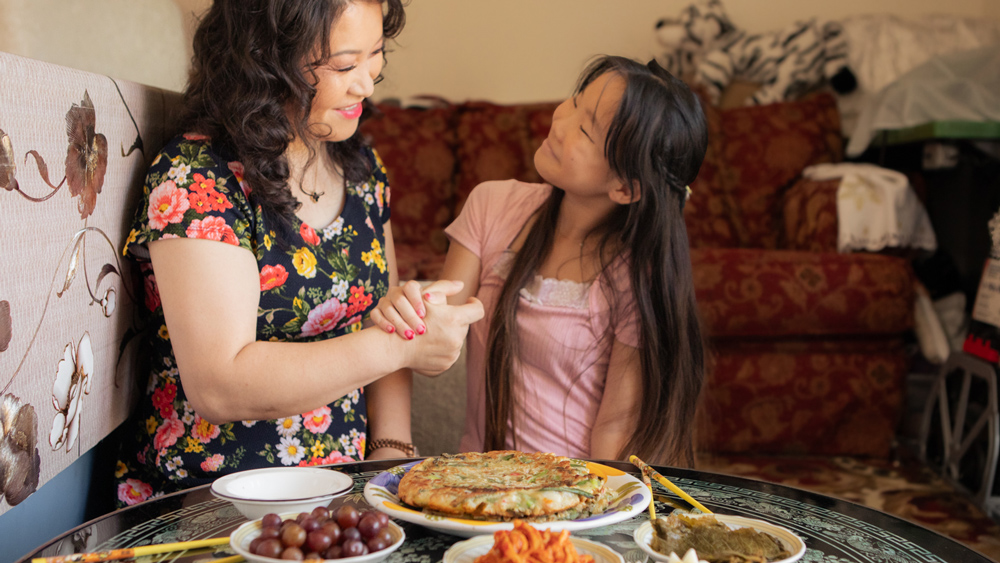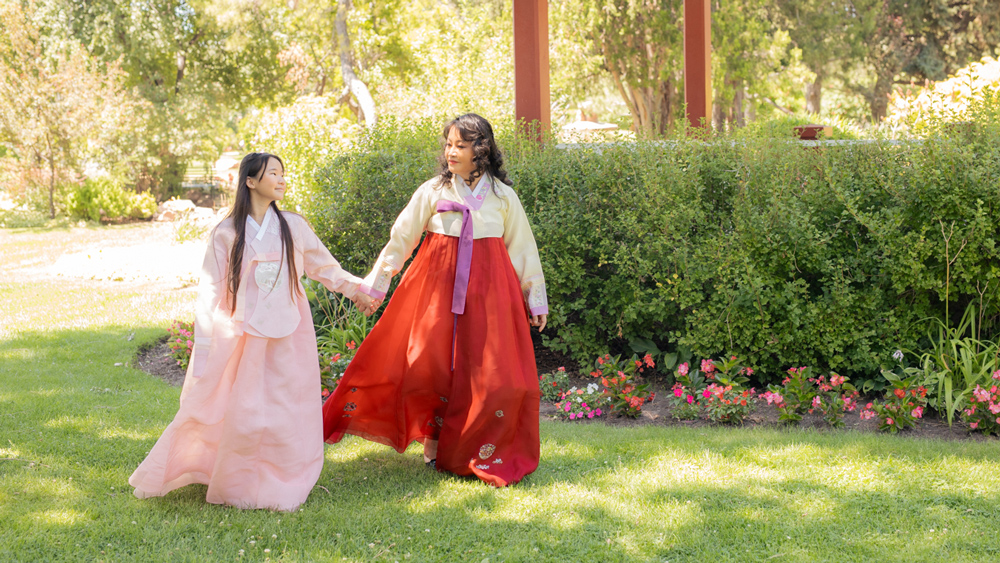An Exclusive Interview With LiNK’s Field Manager
.jpg)
Over 1,200 North Korean refugees have reached freedom through our secret rescue routes. Michael Kim* is LiNK’s Field Manager and has overseen dozens of rescue missions, helping hundreds of these refugees safely reach freedom. Here is an exclusive interview with Michael, only for Liberty Donors like you! *Name changed for security reasons
Why did you want to work on the North Korean issue?
Michael: I went to university in South Korea and there I met North Koreans for the first time. I became really good friends with them without knowing they were from North Korea. As we grew closer, I grew more aware and informed. I also studied Political Science and International Relations, so I wanted to be more involved in the North Korean issue..
After college I went to serve in the South Korean military. The mandatory military service is a constant reminder of the “other” Korea – a Korea where people have drastically different living standards. Basically everything you do in the military is preparing for a potential war with North Korea. They were seen as “the enemy.” But I had friends who were from North Korea. I realized I should do something to change the situation on the Korean peninsula.
What made you want to work in the field?
Michael: I planned to go to graduate school but then a position in the field opened. I realized it was a once-in-a-lifetime opportunity and a really meaningful role. I ultimately decided to apply because I trusted LiNK and the work. It was a special opportunity because I would get to meet North Korean refugees during the most vulnerable state of their journeys and represent LiNK and the supporters who care about them.
What is the hardest part of your job?
Michael: It’s hands down the isolation. For security reasons, we can’t be open about our work. In Southeast Asia, we meet people but can’t reveal why we’re there or what we do. We have to come up with cover stories and when people ask too many questions, we shut them down. “Ah it’s just work. It’s boring. You don’t want to know.” It makes it hard to build meaningful connections outside of work.
Sometimes it takes a toll. Because there are times you do want to share your life with people. But this is why the field team is so close. Everyone shares everything so it’s like a family.
.jpg)
What is your favorite part of the job?
Michael: Meeting our North Korean friends. When we meet, we tell them, “We’re honored to meet you.” And we mean it. We’re thankful and thrilled they made it this far and had the courage to seek freedom.
When you meet North Korean refugees in the field, what do they need the most?
Michael: When we meet them in person for the first time, they’re physically and mentally exhausted because of the long and dangerous journey they just went through. The fact that they made it to Southeast Asia is such a feat.
We focus on three things.
First, we want to support them physically and mentally. We make sure they get rest and create a safe space for them to recuperate.Even just meeting us gives the North Korean refugees a sense of relief. Throughout their journeys, they get directions over the phone or through people to go to pick up spots. So when they reach the final destination and hear the South Korean accent for the first time, it’s like a sign of freedom. They’ve only heard the accent in South Korean movies and dramas.Many of them have not been able to speak their native language freely since they left North Korea so they can finally relax and speak freely. As they share their journeys with us, we build personal relationships with them and it gives them so much encouragement and support.
Second, we do a quality control check. We ask them if anyone on their journey demanded money from them or treated them without dignity or respect. Because of our donor’s generous support refugees do not have to pay to be rescued by LiNK and we want to ensure refugees were not asked to pay by anyone on their route.
Lastly, we give them information. We let them know what to expect during the resettlement process and answer their questions. In some cases, refugees don’t know where they’re going because they’re trying to reunite with family members. We try to fill in the blanks and help them gain a fuller picture of what’s next.
.jpg)
What are some questions you get from North Korean refugees?
Michael: If there’s a refugee who just left North Korea, they might ask really random questions. Everything is so new to them. They ask about the traffic lights or the names of trees in Southeast Asia. Many of them want to learn how to speak in a South Korean accent.
They also ask really pragmatic questions like, “What should I do in South Korea to make money so that I can bring my children out of North Korea?” This is a really common question.
One question someone asked was, “Can I travel abroad? And how long can I do that before the government wants me back in the country?” We explain to them that as long as they have a visa to the country they’re going, the South Korean government doesn’t care how long they’re gone!
What are surprising things you hear from North Korean refugees about North Korea?
Michael: The living conditions in North Korea are so bad. It shouldn’t surprise us anymore but every time you hear about it, it’s not easy. For example, they tell us that they were working for the government but were basically forced into slave labor. They’re doing this hard labor but they’re not getting paid by the government. In order to survive, they have to do something on the side.
Another grim reality is military life. North Korean men have to serve 10 years in the military and it’s not like life is easy there. People have said that they defected because they think about their little boys' futures. They know that once their son turns 18, he has to go to the military. By the time he returns, he’ll be 30. And they will miss out on all their time together.
What do most North Korean refugees want to do once they reach freedom?
Michael: It depends. Parents just want a better future for their children. Most people really want to learn. They’re hungry for knowledge. They want to learn how things are outside of North Korea and in the world. When we ask them what they want to do, most will tell you that “I don't know enough to know what I want. I just want to go there and see what options I have.”
.jpg)
What field experience has stayed with you?
Michael: Refugees don’t fully grasp the idea of having donors supporting the North Korean people unconditionally. They end up asking, “What do they really get out of this? Why are they doing this? Is this the government?” It’s really hard to understand that individuals on the other side of the world care enough to support them.
But occasionally, we have people who fully understand and they feel so moved and inspired that they in turn want to participate in this movement. And that is really powerful. Seeing them go from a position of getting help to wanting to do something is always powerful to witness. It’s one thing to be grateful, but it’s another to say, “Now it’s my turn. Once I get to South Korea, this is what I’m going to do. I’m going to find ways to contribute.” They tell us that our work has opened their minds and they want to help.
Is there anything you want to say to our donors?
Michael: We can solely focus on what is best for the North Korean refugees only because we have so many generous people who support what we’re doing in the field. We do our best to be good stewards, but the fact that we can just focus on our work and what we can do better instead of worrying about funding is liberating. Because we’re in the field, we don’t really get to meet donors, but everything that we do - it reminds us that it’s only possible because of our donors and their support. We feel the support and we are so grateful!
Thanks to your monthly gift, Michael and his team are able to help rescue North Korean refugees at a moment’s notice. We’re so thankful for your continued support! Thank you for standing alongside the North Korean people!
Chuseok for North Koreans | No Way Home for the Holidays
Autumn is a significant season for many people and cultures around the world. It’s a period of transition and reflection, gratitude for the days gone by, and celebration of the harvest.
In both North and South Korea, this time of year is celebrated with Chuseok, or the mid-autumn festival. Also known as “Korean Thanksgiving,” it’s a major holiday that predates the division of the peninsula. Chuseok is observed on the 15th day of the 8th month of the lunar calendar, when the harvest moon shines brightest. Traditionally, people return to their ancestral hometowns to gather with family, share a variety of delicious foods, and pay respects to their ancestors.
But for North Korean refugees, there is no going back. Holidays like Chuseok can be a bittersweet time, one of both gratitude for a life in freedom and grief over being unable to celebrate with family still inside North Korea.
“The first Chuseok in the US felt very empty and lonely. It was just me and my two-year-old daughter, Mia, back then. It didn’t feel like a holiday. I had multiple emotions at the same time. Loneliness, emptiness… there were so many feelings that I couldn’t even put into words.“
– Holly, escaped North Korea in 2013
Chuseok celebrations have evolved to look a little different in North versus South Korea, and even in countries like the US where the Korean diaspora have resettled.

Chuseok Traditions in South Korea
In South Korea, Chuseok is considered the largest and most important holiday of the year. It’s celebrated over three days, during which a “national migration” takes place as people all over the country travel to their hometowns or to go sightseeing. Tickets for planes, trains, and buses are sold out months in advance, and freeways are packed with bumper-to-bumper traffic during the holiday period.
On the morning of Chuseok, families hold a memorial service for their ancestors at home, known as charye (차례). A table of food is prepared as an offering, typically featuring rice cakes, fresh fruits and vegetables, meat dishes, and the favorite meals of deceased loved ones. Families will also visit ancestral gravesites, a custom known as seongmyo (성묘), to pay their respects and tend to the graves.

From the ancestral table to large family meals, food is a central part of Chuseok celebrations. The defining dish of this holiday is seongpyeon (송편), a chewy, sweet, and nutty half-moon shaped rice cake steamed in fresh pine needles. It’s traditionally made with rice from the year’s harvest, finely milled into flour. Preparing seongpyon becomes a family activity as each piece is shaped by hand and filled with red bean paste, toasted sesame seeds, or chestnuts.
Other holiday foods include pajeon(파전), a crispy, savory pancake made with green onions; galbijjim (갈비찜), sweet and savory braised short ribs; and japchae(잡채), glass noodles stir-fried with meat and vegetables.

How Chuseok is Celebrated in North Korea
In North Korea, Chuseok is just a one-day celebration. While it is considered a key traditional holiday, its importance has been minimized relative to national holidays like the birthdays of Kim Il-sung and Kim Jong-il, and the anniversary of the founding of the Worker’s Party.
On both traditional and national holidays, North Koreans are urged to visit the statues of Kim family leaders or the Kumsan Palace of the Sun in Pyongyang, where the bodies of Kim Il-sung and Kim Jong-il lie.
It is much less common for widespread travel to take place during Chuseok due to severe travel restrictions and poor transportation infrastructure. However, these constraints have also made it so that generations of North Koreans remain in close proximity to their hometowns and relatives. For Chuseok, people gather with their nearby family members. Just like in South Korea, they’ll prepare special foods as offerings for charye, and then visit ancestral grave sites to pay respects.
After ancestral rites, festivities become a community affair with traditional food and folk games shared amongst family, friends, and neighbors. Songpyeon is also a holiday staple, but the North Korean version is made with a minced meat and vegetable filling, and are twice as big as South Korean ones. Common folk games are yutnori (윷놀이), a board game, and ssireum (씨름), or Korean wrestling.
Holly & Mia: A Legacy of Freedom
It’s been over a decade since Holly left her hometown in North Korea. But whenever she makes pajeon (파전), it takes her right back to her childhood—sitting by the frying pan and watching her mom cook, eagerly awaiting a taste. “Pa”(파) means green onion and “jeon”(전) refers to foods that have been pan-fried or battered. There are many varieties of “jeon,” made with everything from potatoes to zucchini, seafood, kimchi, and more.
Holly saw her mom cook this dish countless times in North Korea. It was an inexpensive, everyday staple, but also an essential part of the holidays. Every year for Chuseok, the mouthwatering aroma of oil and batter would draw everyone to the kitchen, where a colorful assortment of jeon was being prepared.
Holly now lives halfway across the world from North Korea, but every year during Chuseok, she sets out an offering table for charye. For hours, she prepares foods like pajeon with great care, remembering and honoring her parents and loved ones, who she can’t be with for the holidays.

In 2016, Holly reached freedom through LiNK’s rescue networks with one-year-old Mia in her arms.
Mia is now at an age where she’s able to understand some of the things her mother went through. Holly has begun to open up more about her life in North Korea, and does her best to keep their small family connected to their Korean heritage. She takes Mia to Korean language school on Sundays, and makes an effort to celebrate cultural holidays, like Chuseok. What can’t be put into words, Holly communicates through food—their dinner table is always full of delicious Korean cooking.
In 2024, Holly received her US citizenship, nine years after her resettlement!
"When I obtained my US citizenship, it felt like my escape journey was finally complete. I cried and felt so grateful to the US for giving me a new life. My greatest happiness is seeing Mia have a childhood free of the painful hardships that defined mine.”

These days, Chuseok has become a lively gathering with the many friends and neighbors they’ve met over the years! Holly gathers with other Koreans in the community, and they go all-out preparing delicious seongpyeon and pajeon. She takes great pride in wearing traditional hanboks with Mia, and explaining each dish when guests arrive. The festivities always continue long after dinner, with Korean games like jegichagi, a version of hacky sack, and yutnori, a board game.
Living in the US, Holly and Mia have been introduced to new traditions too. Just a month after Chuseok, their community gathers again to celebrate Thanksgiving with turkey and pumpkin pie, in true American fashion.

Holly still has hope that in her lifetime, she’ll be able to celebrate Chuseok with all her family and bring Mia to visit her hometown in North Korea.
We’re working towards the day when families don’t have to be separated. To date, LiNK has rescued almost 1400 North Korean refugees and their children, reuniting over 500 people with their families in freedom. As we’re helping North Koreans, like Holly, build new lives, we’re also leading initiatives to increase change inside North Korea, through advocacy, information access, and more.
Become a monthly donor and create a long-lasting legacy of freedom. Your support will rescue North Korean refugees waiting for their chance to escape right now, and fuel work that is increasing change and opening inside North Korea.




